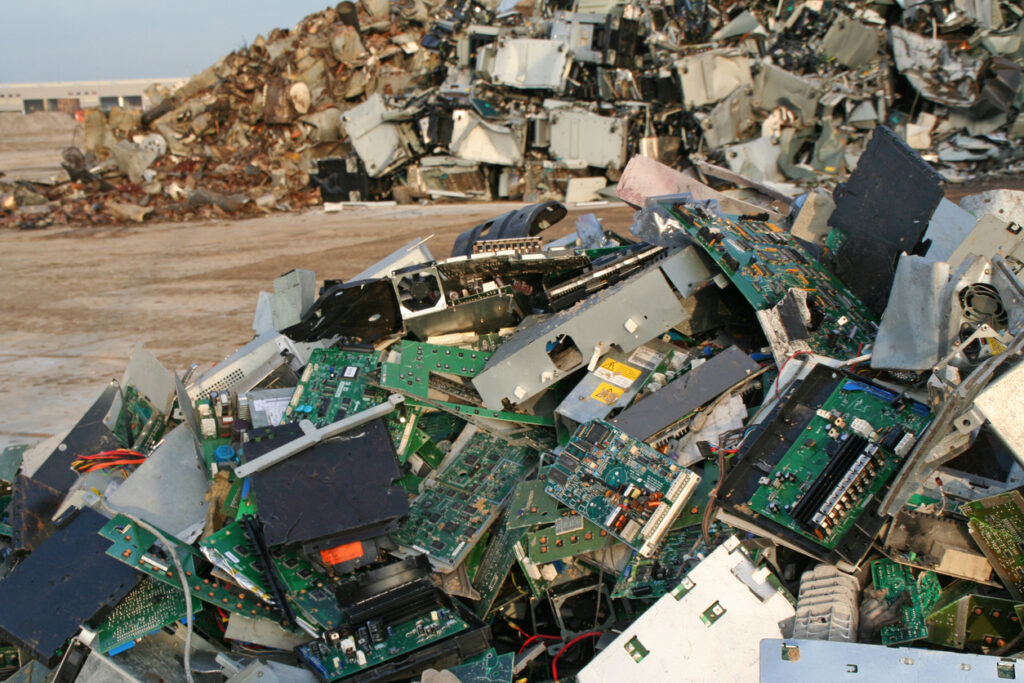Table of Contents
E-Battery Goldrush
In an era dominated by technological advancements, electronic batteries are pivotal in powering our devices. As the world shifts towards sustainable practices, e-battery recycling economics has become a significant topic of interest. Is it truly a goldmine for economic and environmental benefits, or is the hype overblown?
Renovar covers the intricacies of e-battery recycling in this blog, including its economic aspects, possible earnings, and environmental effects.
The Rising Tide of E-Battery Usage
There is a sharp increase in demand for batteries, particularly lithium-ion batteries, due to the growing use of electronic gadgets. When these batteries run out of life, whether recycling them may be profitable emerges. Examining the sheer amount of electrical batteries in use will help you grasp the economic environment.
The Composition of E-Batteries
Understanding the composition of e-batteries is crucial before diving into the economics. Rare earth elements, cobalt, nickel, and lithium, are valuable components in most electronic batteries, especially lithium-ion batteries. The recycling of e-batteries can become quite profitable if these components are processed effectively.
The Environmental Imperative
E-battery recycling solves an urgent environmental issue in addition to financial ones. Batteries that are disposed of incorrectly add to electronic garbage, or “e-waste,” which can contaminate water and soil. We recover important resources and lessen the negative effects of hazardous chemicals on the environment by recycling e-batteries.

E-Battery Recycling Economics
Resource Recovery
Recycling e-battery lets one close the loop on essential materials such as nickel, cobalt, and lithium. We may use this urban mine of old batteries instead of obtaining them from unrefined sources, greatly lowering the material acquisition process’s environmental impact.
- Decreased reliance on damaging mining: Conventional mining frequently ruins communities and pollutes ecosystems. Recycling e-battery provides a greener option that protects vulnerable groups and the environment.
- Protected natural resources: The few resources on Earth are valuable. Recycling e-batteries increases the useful life of these precious resources and guarantees their continued availability for upcoming generations.
- Decreased garbage generation: One of the main issues is overflowing landfills. Recycling e-batteries keeps these batteries out of landfills, reducing pollution and freeing up valuable space for other purposes.
Profitability for Recyclers
Even though there is no denying the environmental benefits, recyclers’ profitability is still an important concern. Let’s examine the variables that affect the potential for profit from recycling e-batteries in more detail:
- Growing Battery Demand: An increasing number of old batteries that need to be recycled result from the skyrocketing demand for electric vehicle batteries. It guarantees recyclers a dependable supply chain.
- Important Recovered Materials: Because of their limited availability and wide range of uses, expensive metals like nickel, cobalt, and lithium—all found in e-batteries—are in high demand. It can be rather profitable to recover these metals for reuse.Government Incentives: Several governments are putting laws and regulations in place to encourage E-battery recycling, including mandated collection programs, tax exemptions, and subsidies. These programs can considerably increase the financial sustainability of recyclers.
- Technological Advancements: Ongoing research and development results in recycling techniques that are more effective and economical. Recycling costs will go down as technology advances, increasing profitability.
- Circular Economy: E-battery recycling is a great fit for the circular economy concept, which aims to reduce waste and resource depletion. This strategy can draw in eco-aware investors and produce long-term company plans.
Job Creation
From collecting and transportation to processing and remanufacturing, the full lifecycle of E-battery recycling creates a wide range of job opportunities:

- Logistics and Collection: Positions in battery collection networks are created for everything from arranging drop-off locations to supervising the delivery of used batteries to recycling centres.
- Disassembly and Sorting: To securely disassemble battery packs, separate individual cells according to kind and condition, and get them ready for additional processing, skilled experts are required.
- Processing and Refining: To extract and purify important metals from batteries, chemists, engineers, and technicians run and maintain specialised equipment for hydrometallurgical or pyrometallurgical procedures.
- Production and Remanufacturing: New batteries and other components are made from recovered metals, necessitating work in material handling, quality assurance, and production lines.
- Research and Development: Engineers and scientists are always coming up with new, more effective recycling technologies, which propels the industry forward and creates jobs in high-tech research.
Technological Challenges and Innovations
Even if recycling e-batteries has a clear financial benefit, technological obstacles must be solved. Optimising the financial gains from e-battery recycling requires technological innovations in enhanced extraction techniques and sorting procedures.
Government Incentives and Regulations
Governments worldwide are putting laws and incentives in place to encourage appropriate disposal because they understand how important it is to recycle e-batteries. The financial sustainability of e-battery recycling projects can be further improved by being aware of and taking advantage of certain government programs.
Public Awareness and Participation
The economic viability of recycling e-batteries also depends on public awareness and involvement. The amount of batteries that enter the recycling stream can be greatly reduced by informing customers about the benefits of recycling their electronic batteries and setting up convenient locations for collections.
Conclusion
As technology and sustainability change, recycling e-batteries becomes a viable business venture and a critical first step in becoming environmentally conscious. E-battery recycling is a goldmine worth investigating due to the potential for financial rewards, resource recovery, and employment creation. However, turning the hype into a sustainable reality will require overcoming technology issues, utilising government incentives, and encouraging public involvement. Partner with us for a more sustainable and profitable future.
FAQ
Why is e-battery recycling economically significant?
E-battery recycling extracts valuable materials like lithium, cobalt, and nickel, offering economic benefits and reducing reliance on newly mined resources.
How does e-battery recycling contribute to sustainability?
Recycling electronic batteries mitigates environmental hazards associated with improper disposal, fostering sustainability and responsible resource management.
Are there economic opportunities for recyclers in e-battery recycling?
Recyclers can profit by extracting and selling recovered materials, contributing to job creation and supporting a growing industry.
What challenges does e-battery recycling face?
Technological challenges, such as efficient extraction methods, must be addressed for optimal economic benefits in the e-battery recycling industry.
How can individuals participate in the success of e-battery recycling economics?
Public awareness and participation are crucial. Educating consumers about responsible battery disposal and providing convenient collection points enhance the success of e-battery recycling initiatives.


